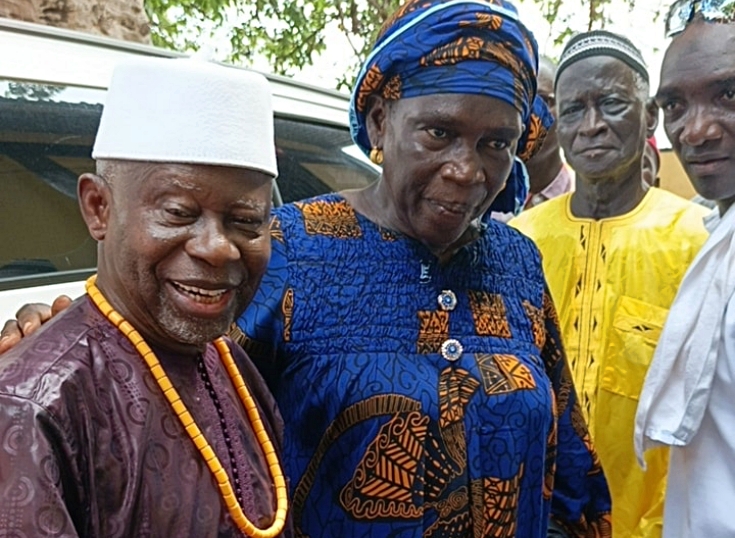Gambiaj.com – (BANJUL, The Gambia) – The United Democratic Party (UDP) has reaffirmed its longtime leader, ANM Ousainou Darboe, as its flagbearer for the 2026 presidential elections, following a tense and protracted internal selection process at the party’s Manjai Bureau.
Darboe, a veteran politician and lawyer, secured the nomination ahead of fellow contenders Lawyer Borry Touray and former Finance Minister Amadou Sanneh.
His victory, though largely expected, marks the sixth time he will lead the UDP into a presidential contest—a role he has held since the party’s founding in 1996.
But behind the celebrations lay a process that exposed divisions within the party. The race, initially crowded with multiple hopefuls, saw the withdrawal of Kanifing Mayor Talib Ahmed Bensouda, widely viewed as a rising star and potential successor to Darboe. Lawyer Lamin J. Darboe was also eliminated earlier in the process, reflecting a winnowing that left some supporters dissatisfied.
Efforts to forge consensus among the contenders faltered, and attempts to persuade candidates to step aside in favor of a single unifying figure ended in deadlock.
These developments have sparked concern about possible fractures within the UDP’s base, particularly among younger members who had rallied behind Bensouda as a symbol of generational change.
While UDP officials hailed the outcome as proof of the party’s democratic traditions, insiders admit the selection process has left lingering discontent in some quarters.
Darboe himself appeared keenly aware of this challenge as he emerged to greet supporters at Manjai Bureau, taking a walkabout under chants of jubilation and waves of the party’s yellow flags. His capacity to bridge the divides exposed during the selection process will likely prove central to the UDP’s unity and electoral strength ahead of December 2026.
Political observers note that Darboe, now in his seventies, enters this race with both assets and liabilities.
His experience, resilience, and national profile remain unmatched within the UDP, but the repeated reliance on his candidacy has raised questions about the party’s ability to renew itself.
The internal tensions that surfaced during the flagbearer contest underscore those concerns, making his leadership not only a question of defeating incumbent President Adama Barrow but also of holding the UDP together.
Darboe and Barrow last faced off in the 2021 presidential election, when Barrow secured a second term. Their rivalry carries deep personal and political weight, as Barrow rose to power with UDP backing in 2016 before breaking away to form his own National People’s Party (NPP).
As the 2026 election looms, the UDP’s ability to consolidate behind Darboe—and his ability to assuage disappointed factions—will be key determinants of whether the party can mount a serious challenge to Barrow’s incumbency.
For now, Darboe remains at the helm, once again tasked with steering The Gambia’s largest opposition party into a decisive political battle.










